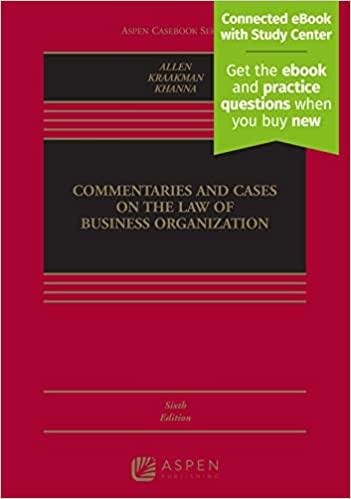This is the case of Rogers v. household life insurance Co.
Question: include
the following;
Fact:
Judgment:
Issue:
Holding:
General Analysis
Applied Analysis:
Rogers v. Household Life Insurance Co. 2011 Idaho LEXIS 53 (Idaho Sup. Ct. 2011) Alan Rogers was diagnosed with Alzheimer's and dementia in 2003. Soon after, Alan's son, Jason, sought an adjudication that Alan was incapacitated. An order to that effect was entered in 2004. The letters appointing Jason as guardian and conservator for his father did not place any limitations on Jason's powers. On May 15, 2007, Jason helped his father complete and submit an online application for life insurance offered by Household Life Insurance Company (HLIC). The application requested infor- mation regarding Alan's health, but did not specifically inquire as to whether Alan suffered from Alzheimer's or dementia. The completed application did not reveal that Alan had been adjudicated to be incapacitated, nor did it reveal that Jason had been appointed as his father's guardian and conservator. That day, HLIC approved the application, the initial $447.20 premium was paid, and Alan Rogers's term life insurance policy with a face value of $250,000 took effect. Jason was the sole beneficiary of the policy. Alan passed away on June 7, 2007. His death certificate lists the sole cause of his death as "dementia of the Alzheimer's type." Jason submitted a notice of claim to HLIC, seeking the $250,000 policy proceeds. HLIC conducted a medical-history ver- ification, a routine procedure for claims arising within two years of a policy's inception. Several months later, HLIC informed Jason that, because Alan had been adjudicated mentally incompetent prior to the May 15, 2007, application and effective date, the policy was void from its inception. Jason brought suit against HLIC, alleging breach of contract and bad faith. HLIC moved for summary judgment on the grounds that Alan Rogers was adjudicated mentally incapacitated prior to entering into the insurance contract and thereforethe contract was void. Jason took the position that the contract was merely voidable at the election of the incompetent's guard- ian, and that a guardian may ratify such a contract. The district court granted HLIC's motion for summary judgment and dismissed Jason's complaint. Jason appealed. Horton, Justice Idaho Code 32-108 provides as follows: After his incapacity has been judicially determined, a person of unsound mind can make no conveyance or other contract, nor delegate any power or waive any right until his restoration to capacity. . . . Jason asserts that the statute's language that one adjudicated to be incapacitated \"can make no conveyance or other contract\" means that although such a person should not contract, if he or she does, the contract is merely voidable. HLIC responds that under the statute's plain language, the contracts of one who is adjudicated incompetent are void because the individual lacks all capacity to contract. The language of LC. 32-108 does not, upon prelimi nary consideration, support Jason's position. Effectively, Jason argues that the statutory language that a person adjudicated to be incapacitated \"can make no . . . contract\" means that such a person may enter into a contract, while simultaneously retaining the ability to avoid the obligations imposed by the agreement. Nevertheless. when considering Jason's claim that the insurance I.C. 32-107. In other words, prior to a judicial determination of incapacity, such contracts are voidable. However, after a judi- cial determination of incapacity, \"a person of unsound mind can make no conveyance or other contract, nor delegate any power or waive any right until his restoration to capacity.\" Comparing I.C. 32-107 and LC. 32-108, it is evident that the legisla- ture intended that contracts involving persons not adjudicated to be incapacitated are to be voidable and to declare that a person adjudicated to be incompetent is without the legal capacity to contract until that person has been \"restored to reason.\" Guardianship proceedings fall directly within the scope of those the legislature intended to be conclusive judicial deter minations of incapacity. In a guardianship proceeding, the trial court assesses whether an individual's acts and statements dur ing the twelve preceding months strongly indicate the inability to maintain his or her self or property. If the individual has some ability to care for himself or herself, the court may craft a guard- ianship that corresponds with his or her capacity. This \"limited guardianship\" is accomplished by noting limitations within the letters of guardianship. A finding that one is incapacitated and a contract in this case was merely voidable, rather than void ab initio, we consider the statutory framework relating to persons who suffer from impaired capacity and their ability to make deci- sions regarding the conduct of their lives. Idaho Code 32-106 through 32-108 address the enforce- ability of contracts involving persons of unsound mind. If a person is \"entirely without understanding,\" he \"has no power to make a contract of any kind, but he is liable for the reason- able value of things furnished to him necessary for his support or the support of his family.\" I.C. 32-106. A contract involving a party who is \"not entirely without understanding\" and has not been adjudicated to be incapacitated \"is subject to rescission.\" grant of unrestricted guardianship powers represents a finding that the ward lacks all capacity to make decisions and take ac- tions that protect his or her well-being. Thus, we conclude that the appointment of a guardian with full powers represents a find- ing that the ward lacks the capacity to contract as a matter of law. According to the plain language of Idaho Code 32-108, an adjudication that one is incapacitated is a determination that one lacks the capacity to contract as a matter of law. Thus, agree- ments entered into by such a person do not give rise to enforce- able contracts. Affirmed in favor of HLIC









